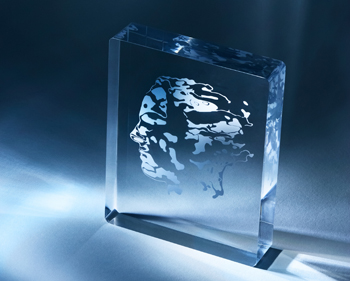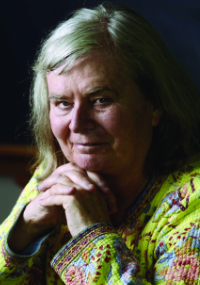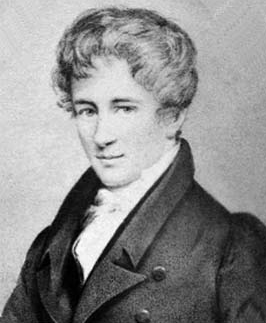
The world of maths is nearing an important date in its calendar: the announcement of the Abel Prize, awarded annually by the Norwegian Academy of Science and Letters. It is named after the Norwegian mathematician Niels Henrik Abel whose work was so groundbreaking that, according to the French mathematician Charles Hermite, it "left mathematicians enough to keep them busy for five hundred years." Abel was born in 1802 but died tragically young, at 26, from tuberculosis and in poverty.

The Abel Prize logo in glass. Image credit: Calle Huth/Studio/Abel Prize.
With a history of only twenty years — compared to over 120 for the Nobel Prizes and nearly 100 years for the Oscars — the Abel Prize is relatively young and not quite as famous as its counterparts in other fields. It's worth spreading the word, therefore, and now is a good time to do it too. Last week the Abel Prize committee decided on this year's winner, to be announced on March 22, 2023, and celebrated the occasion with a symposium held at the Isaac Newton Institute (INI) for Mathematical Sciences in Cambridge. It was a fitting location: since the INI opened its doors in 1992, twelve Abel Prize winners have attended its research programmes.
Celebrating all of mathematics
"The Abel Prize recognises the highest achievements in mathematics," says Helge Holden, current Chair of the Abel Prize committee. "There are no restrictions on the area of maths, no restrictions on age, no restrictions on geography." The prize comes with an award of 7.5 million Norwegian Kroner, which currently translates to just over £622,000. It can be awarded to up to three living mathematicians at a time and, since its establishment in 2002, has been awarded to 25 mathematicians. You can see our articles on all of the winners here.
The Abel Prize is not in competition with the Nobel Prizes because there isn't a Nobel prize in mathematics. The reasons for this aren't entirely clear, but it's been suggested that Nobel was more interested in practical fields whose inventions and discoveries have a direct impact on humankind. If this is true then that's a little ironic, considering that some of Niels Henrik Abel's work, conducted 200 years ago, helps to enable the Internet. But more on that later.
With no Nobel in maths, the Abel Prize fills a gap. The only mathematics prize to rival its prestige is the Fields Medal, but that is only awarded to mathematicians no older than 40 years of age. Although the Abel Prize isn't specifically stated to be a lifetime achievement award, the lack of an age limit renders it a perfect complement to the Fields Medal.
Unreasonably effective
The main quality the Abel Prize Committee look for in a mathematician's work, says Holden, is its impact — inside mathematics and also beyond it. There are various ways this impact can come about: through making connections between areas, starting new areas, or solving important problems, for example. The difficulty here is that mathematics isn't as easily defined as you might think.
"It's clear that geometry is mathematics and that number theory is mathematics," says Holden. "But you soon start to leave pure mathematics and then you may end up in physics, in economics, in biology, or in [computer science]. And that's where it becomes tricky." This is a result of the unreasonable effectiveness" of mathematics at describing so many aspects of the world around, and even inside us — its being a "language of the universe" as Galileo Galilei put it. And it's one reason why the Abel Prize committee seek the help of a host of relevant experts to reach their decision.

Karen Uhlenbeck was the first woman to win an Abel Prize. She received it in 2019.
The Abel Prize is designed to, in time, cover all areas of mathematics. So far it has done a good job in that respect. The first prize in 2003 was awarded to Jean-Pierre Serre for "shaping the modern form of mathematics" working in pure mathematical areas such as algebraic geometry and number theory. In 2021 the prize was shared by Avi Wigderson and László Lovász for theoretical work that ended up helping to keep our online transactions safe. In 2014 it went to Yakov G. Sinai for his work on the theory of chaos. And in 2006 it went to Lennart Carleson in part for work on a theory that describes all things wave-like, and has many applications in modern technology. This small, and rather random, collection of examples indicates the breath of maths.
Conspicuously absent on the list of Abel Laureates are the names of women. So far only one woman, Karen Uhlenbeck, has been awarded the prize. This is a generational effect. With no age limit the Abel Prize has so far been awarded for bodies of work accumulated over a life-time, which means that its winners so far have been past their first youth — and the further you look back in mathematics, the fewer women you see. It's therefore (hopefully) only a matter of time until things change. "Hopefully during the next four years we will see at least one woman Abel Prize winner," said past Chair of the Abel Committee Ragni Piene when we talked to her in 2022.
Everyone's a winner
Apart from rewarding those who excel in their field, another impact of a big prize is that it raises the profile of that field among the rest of us. In this context, the people behind the prize aren't just relying on news coverage. "[The Abel Prize] was established with an equal amount of money allocated to support and stimulate young kids to be interested in mathematics," says Holden. Among the measures that have been established in Norway are competitions for children and teenagers, and a mathematics teacher prize. "Part of the aim is to understand that you can live from doing mathematics in many different ways," says Holden. "Many people don't realise this, so somebody has to tell them."

Niels Henrik Abel.
The symposium held at the INI last week to coincide with the choice of this year's winner brought together some of those who make a living from maths. It featured lectures by last year's Abel Prize winner Dennis Sullivan and one of this year's Fields Medallists, James Maynard, among others. "It was an honour for us to host this year's Abel in Cambridge symposium and to welcome the distinguished speakers, the Abel Committee, and the President of the Norwegian Academy of Science and Letters to the Newton Institute," says Ulrike Tillmann, Director of the INI and currently a member of the Abel Committee. "The two British Abel Prize winners, Michael Atiyah and Andrew Wiles, are deeply entwined with the history of the institute, and many of the Abel Prize winners have visited in the past."
Finally, we mentioned earlier that Niels Henrik Abel helped enable the internet — how did he manage to do that when he lived nearly 200 years before it was first invented? He worked on abstract objects called Abelian varieties which are used in elliptic cryptography, a way of encoding messages that's important in online communications. Thankfully we have the Abel Prize to celebrate the beauty of maths and its power to have unexpected impacts. We can't wait to find out who this year's winner is!
This article was produced as part of our collaboration with the Isaac Newton Institute for Mathematical Sciences (INI) – you can find all the content from the collaboration here.
The INI is an international research centre and our neighbour here on the University of Cambridge's maths campus. It attracts leading mathematical scientists from all over the world, and is open to all. Visit www.newton.ac.uk to find out more.
